The brutal beheading of Cicero: Rome’s greatest politician
On this day more than 2000 years ago, one of the most powerful men in the world was brutally beheaded in a macabre public display.
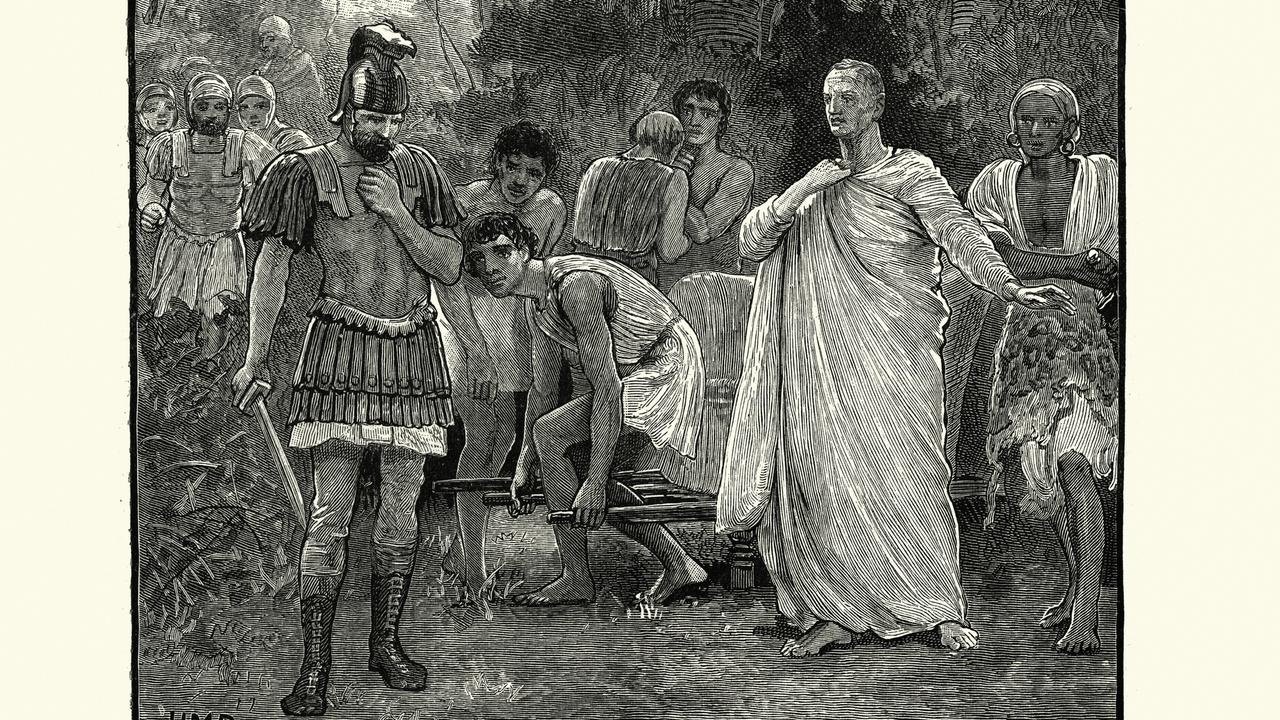
He was one of the most powerful men in Ancient Rome and is still widely quoted today, but more than 2000 years ago, on December 7, 43BC, statesman Marcus Tullius Cicero was brutally executed.
First his throat was slit, then it took three blows to cut off his head with a sword — wielded by a soldier who had never beheaded anybody before.
In a final insult, his hands were chopped off and his remains showcased in a public macabre display, all to appease his biggest political enemy, Mark Antony.
Republican Rome was an intriguing world of civil unrest, sexual decadence and political drama. And much of that political drama revolved around Cicero.
In fact, historians claim it’s a miracle hundreds of the famed orator’s letters and speeches still exist, given that he had so many enemies.
Despite being murdered more than two millennia ago, his memorable quotes are still widely used today.
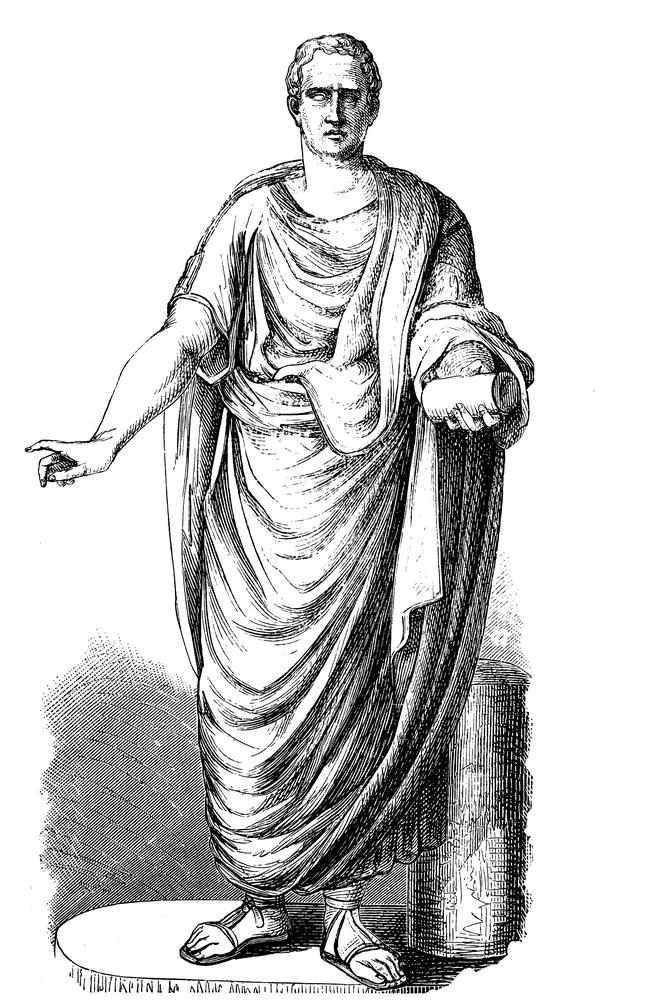
THE FAMOUS ORATOR
You may not realise it, but we’ve all heard, and possibly quoted, the ancient statesman.
“While there’s life, there’s hope.”
“Silence is one of the great arts of conversation.”
“During war, laws are silent.”
It was his ability to speak eloquently which saw Cicero rise from relative obscurity.
Born in 106BC, Cicero was a Roman senator by the age of 30 and by 63BC, when he was 43, he had risen to one of the highest positions a politician could hold in the republic — consul. He was the youngest man to hold that position and it was an extraordinary feat for a man who didn’t come from a political family. (The Romans were apparently very snobby about family connections.)
His reputation began when, as a lawyer, he demonstrated the remarkable ability to wield Latin, using his words as a weapon in the courthouse. He was later credited with the construction of how Latin was spoken and his techniques were mimicked by others wishing to master the language. In those days, the ability to write and speak Latin had much to do with raising a man’s social standing.
SENT INTO EXILE
As a consul, Cicero managed to defuse a conspiracy plot by senator Catiline, who planned to overthrow the Republic. But, when Cicero approved the execution of the main conspirators, he breached a Roman law — that he sent Catiline’s allies to death without a trial.
Breaking that law meant Cicero was sent away from his beloved Rome and into exile. Catiline himself died in battle shortly afterwards.
In 49BC, civil war broke out between head of the Roman Empire Julius Caesar and Pompey, a military and political leader also known as Pompey the Great.
According to Roman historian Appian of Alexandria, Cicero continued to oppose Caesar’s attempts to form a new Roman government. Out of exile, Cicero decided to align himself with Pompey, even though he had no real allegiance to him. Appian believed Cicero deliberately sided with the team he knew would lose.
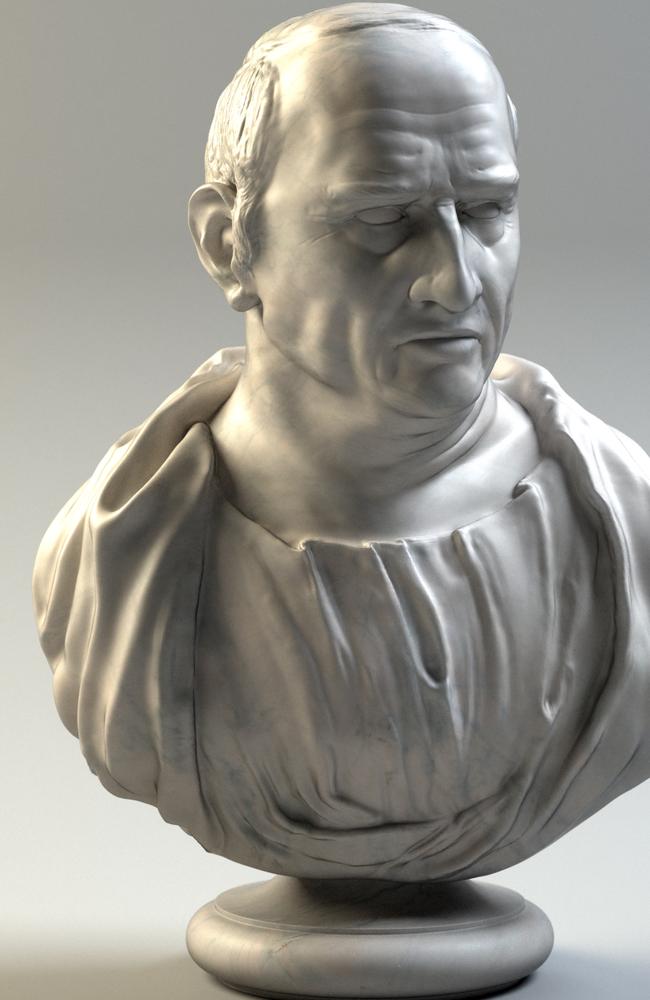
When Pompey’s army was defeated by Caesar at Pharsalus in Greece in 48BC, Cicero assumed he would be sent to exile once again. Instead, he received Caesar’s pardon.
POLITICAL STOUSHES
Despite this gesture, there was clearly no love lost between the men because when Caesar was assassinated in 44BC Cicero was one of those celebrating his death. (Pompey was assassinated four years later.)
The aftermath of Caesar’s death saw years of infighting, during which time Cicero attempted to align with Mark Antony before he eventually denounced him before the Senate in a series of cutting speeches.
Anthony Everitt, historian and author of Cicero: The Life And Times Of Rome’s Greatest Politician, has written about a heated attack by Cicero against Mark Antony — denouncing him as a public enemy.
“Cicero opened the debate at an unusually well-attended meeting with a powerful address, his third philippic. He sought to demonstrate that Antony was an enemy of the state (arguably a treasonable assertion, bearing in mind that he was still consul, if only for a few more days).”
According to Everitt, it wasn’t long before Antony declared Cicero a public enemy.
Cicero was put on a special list of people targeted for execution, along with his brother, son, nephew and a handful of friends. He went into hiding and the public was encouraged to help hunt him down. However, he had a lot of public sympathy and many refused to reveal whether they’d seen him.
THE ASSASSINATION OF CICERO
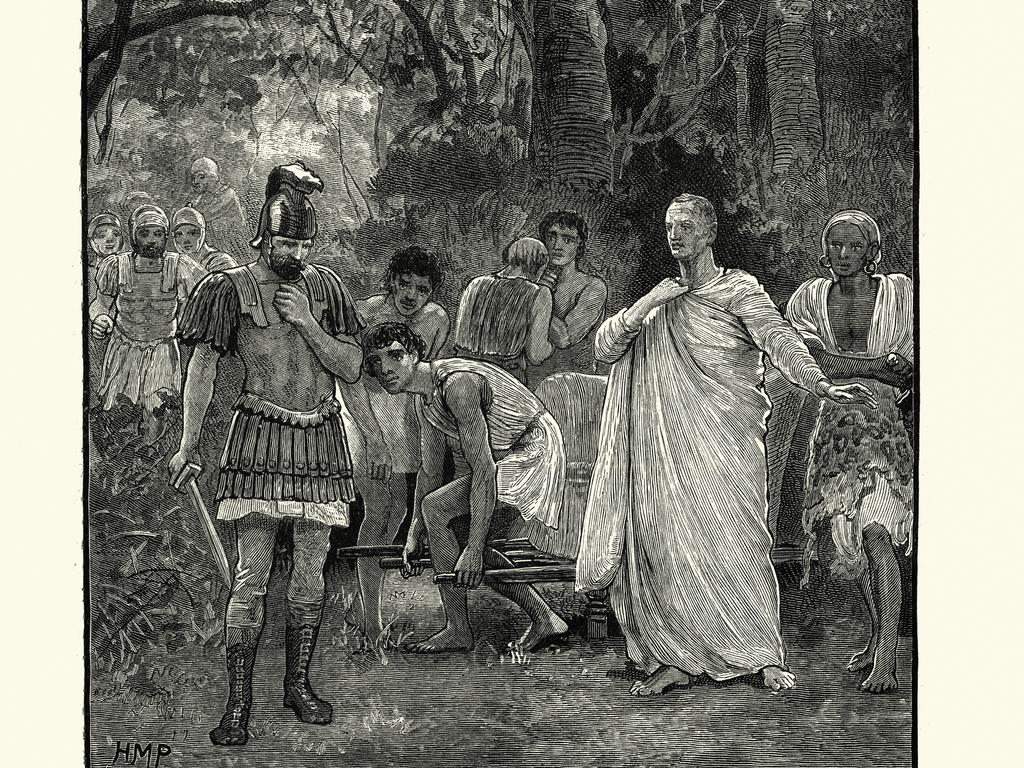
On December 7, 43BC, Cicero left his country house near the Italian town of Caieta for the coast, where he planned to take a ship to Macedonia. But, according to historian Appian, two officers were hot on his heels. When they found Cicero’s slaves, they refused to tell them where he was but they managed to get the information from one of his brother’s freedmen (a worker who was not a slave).
When Cicero and his men reached the coast, the sea was said to be too rough for travelling and they returned to dry land, lying low. That’s how the killers eventually caught him.
According to Greek biographer Plutarch, Cicero surrendered immediately.
Plutarch wrote: “He looked steadfastly upon his murderers, his person covered with dust, his beard and hair untrimmed, and his face worn with his troubles.”
Cicero reportedly said to one of the soldiers sent to kill him: “There is nothing proper about what you are doing, soldier, but do try to kill me properly.” He then leaned out of his litter (a portable bed/couch) to give them a clear stroke.
However, if we read the description historian Appian wrote, the beheading didn’t go very smoothly.
“The attendants were terror-struck, thinking that more soldiers were coming, and Laenas, who had actually once won a court case with Cicero’s support, pulled his head out of the litter and proceeded to cut it off.
“It took three blows and some sawing through because of his inexperience, and he also cut off the hand with which Cicero had composed the speeches against Anthony, portraying him as a despot.”
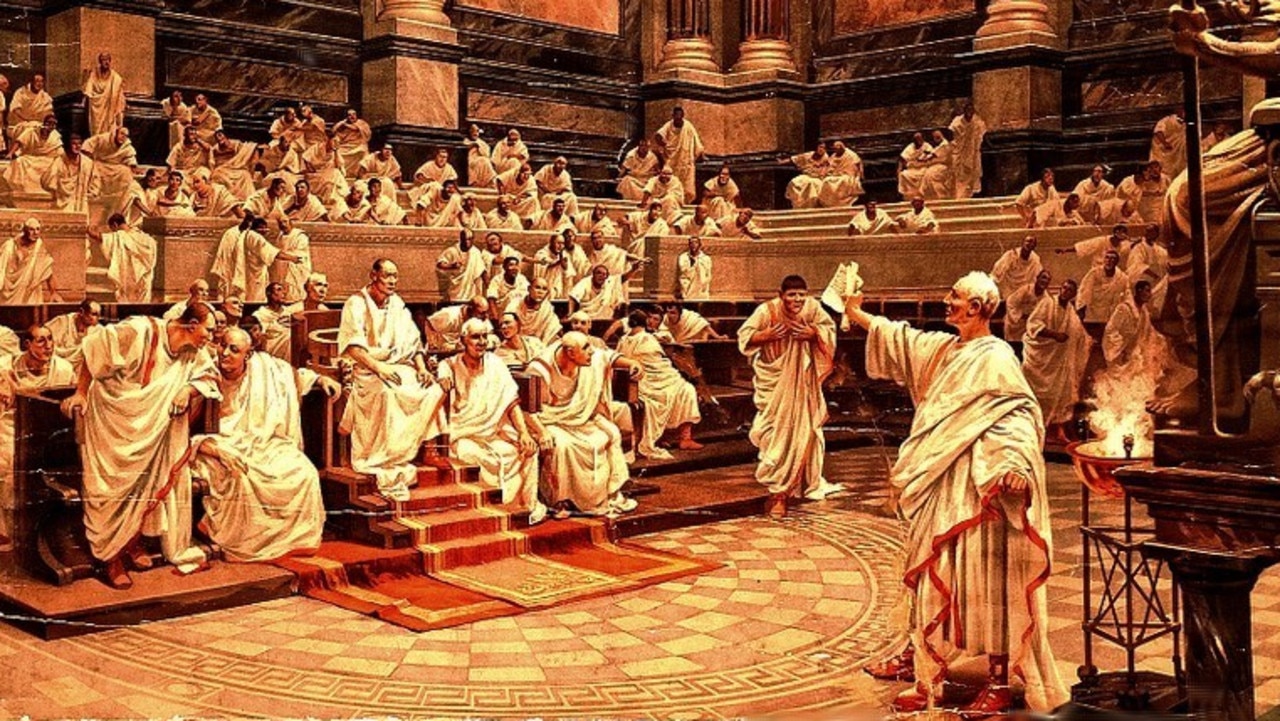
Cicero’s severed head and hands were displayed for all to see at the Roman Forum, in a bid to frighten anyone planning to oppose the new government (known as a Triumvirate) led by Octavian, Mark Antony and Lepidus.
According to Plutarch, the display of Cicero’s head and hands had an adverse effect on the public. The Roman people, he wrote, “believed they saw there not the face of Cicero, but the image of Antony’s own soul”.
According to Everitt, Cicero was able to use his remarkable oratorical skills to argue circles around his opponents. He successfully distinguished conspiracies, he won acquittal for a man convicted of parricide, challenged the dictator Sulla with his powerful rhetoric about the decadence of Sulla’s regime and wrote philosophical treatises.
“Do not blame Caesar, blame the people of Rome who have rejoiced in their loss of freedom, who hail him when he speaks in the forum of more security, more living fatly at the expense of the industrious: Cicero.”
A LEGACY FOR THE AGES
In the end, one of his own quotes rang truest for Cicero himself.
“The life of the dead is placed in the memory of the living.”
His memory has survived more than 2000 years so far.
Indeed, Cicero’s work is considered so important that, among the very first words published on a printing press, after the Gutenberg Bible, was Cicero’s philosophical treatise.
His huge collection of letters, speeches and writings were preserved by a man who had been a slave in Cicero’s house but, though freed, continued to work for him.
In later years, the Catholic Church preserved his writings, believing he was worthy of being saved from the shadow of obscurity.
Everitt believes Cicero was a man who lived at the wrong time. While he tried to create laws to keep the government in order, the Republic was collapsing all around him.
And it would never return to its past glory.
CICERO’S FAMOUS QUOTES
Some of the quotes from Cicero are still used today:
• A room without books is like a body without a soul.
• If you have a garden and a library, you have everything you need.
• To be ignorant of what occurred before you were born is to remain always a child.
• If you have a garden and a library, you have everything you need.
• Live as brave men; and if fortune is adverse, front its blows with brave hearts.
• Gratitude is not only the greatest of virtues, but the parent of all others.
• The safety of the people shall be the highest law.
• It is foolish to tear one’s hair in grief, as though sorrow would be made less by baldness.
— LJ Charleston is a freelance journalist. Follow her on Twitter @LJCharleston



